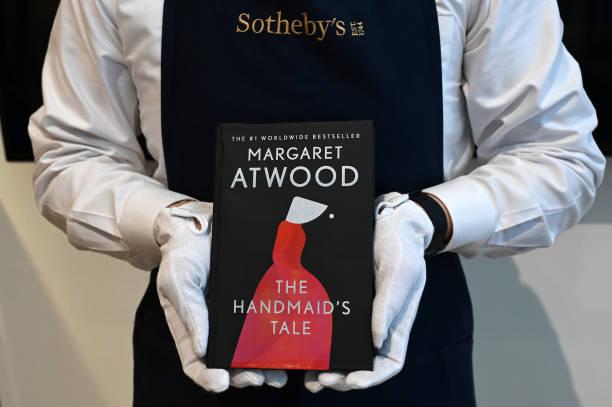Book banning has been going on for as far back as the ancient Greeks. Whether it was a ruler who didn’t want his peasants to be informed or religious groups who wanted their flock to listen to and obey only the spiritual leaders, book banning and book burning dates back centuries. A few examples:
35 AD: Roman emperor Caligula opposed reading of The Odyssey by Homer, written more than 300 years before. He thought the poem dangerous as it expressed Greek ideas of freedom.
1559: For hundreds of years, the Roman Catholic Church listed books that were prohibited to its members; but in 1559, Pope Paul IV created the Index Librorum Prohibitorum. This was now the decisive list of books that Roman Catholics were told not to read. It was one of the most powerful censorship tools in the world.
1624: Martin Luther’s German translation of the Bible was burnt in Germany by order of the Pope.
1720: The Spanish Catholic Church put Robinson Crusoe by Daniel Defoe on the Index Librorum.
1881: Walt Whitman’s Leaves of Grass (published in 1833) was threatened with banning by Boston’s district attorney unless the book was expurgated. The public uproar brought more sales of his books that Whitman was able to buy a house with the proceeds.
(Expurgate: remove matter thought to be objectionable or unsuitable )
1925: Tennessee banned teaching the theory of evolution in schools; the law remained in force until 1967.
1959: The White Citizens’ Council protested The Rabbits’ Wedding, a picture book for children, getting it put on the reserve shelf in Alabama public libraries, as it was believed to encourage racial integration.
1973: Drake, North Dakota school board, ordered the burning of 32 copies of Kurt Vonnegut’s Slaughterhouse-Five and 60 copies of James Dickey’s Deliverance for, respectively, the use of profanity and references to homosexuality.
1987: I Know Why the Caged Bird Sings by Maya Angelou was removed from the required reading list for Wake County, North Carolina high school students due to a scene which the author, at the age of seven and a half, is raped.
2019: In the US, people demanded the removal of Margaret Atwood’s The Handmaid’s Tale from public libraries. Complaints ranged from profanity to “vulgarity and sexual overtones” in the text, reported the American Library Association (ALA). The novel, published in 1985, depicts a future Christian theocracy in the southern half of North America. The ALA also reported that the novel was the 88th most frequently challenged book from 2000 to 2009 and the 37th most frequently challenged book from 1990 to 1999 in U.S. public libraries.
I wonder why. . .
Activist groups and conservative legislatures seem to be working overtime in getting laws passed around the country to ban all sorts of books that a vocal minority of people don’t like. Books about LGBTQ, people of color, Jews, Muslims, fiction, non-fiction. Poetry! Gone. Children’s books such as The Lorax by Dr. Suess and The Giving Tree by Shel Silverstein have been challenged in the past.
According to PEN America, the bans threaten "the future of American democracy, public education, and free expression." And here we are, in 2023, battling censorship again in the form of book bans! The ALA announced in March that efforts to censor books in schools and public libraries reached a 20-year high in 2022 - twice as many as 2021, the previous record.
“Regimes ban books, not democracies.” So said the governor of Illinois on June 12, 2023. Gov. JB Pritzker (D) signed legislation that would stop state funding for any Illinois library that tries to ban books. The new law will take effect on Jan. 1, 2024 and is the country’s first state law to prohibit the practice of banning books in public libraries.
In order to receive that funding, Illinois libraries must accept the ALA’s Library Bill of Rights, which holds that "materials should not be excluded because of the origin, background, or views of those contributing to their creation," or adopt a similar pledge.
So far, in New Hampshire, the book banning craziness hasn’t reached epic levels. During the school year 2021-2022, six books were unsuccessfully challenged in Bedford School District. Perhaps New Hampshire could do something similar to what Illinois did before books become the next targets.
After all, precedent HAS been set!

